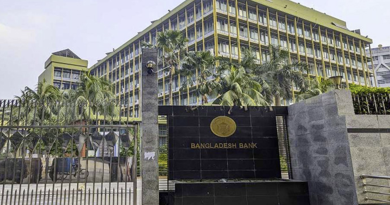The Bangladesh Bank will reopen the application process for digital bank licences in August, Governor Ahsan H Mansur announced on Monday, marking a renewed push to expand the country’s digital financial ecosystem.
Highlights:
- Previous applicants can reapply
- Number of licences won’t be too many
- Applicants must have capacity to invest over Tk2,000cr
- MFS providers cannot directly disburse nano loans
Speaking to reporters, Governor Mansur confirmed that entities that previously applied for digital bank licences will be eligible to reapply. “We will quickly verify the applications and move to the selection process,” he stated.
Although the central bank has not disclosed how many licences will be granted, the governor indicated that the final count will depend on the strength and viability of the applications. “There won’t be too many licences. We will proceed in phases,” he added.
Capital, Capacity, and Long-Term Vision Required
The central bank is setting a high bar for eligibility. Prospective digital bank operators must demonstrate the capacity to invest between Tk 2,000 crore and Tk 3,000 crore, said the governor, stressing the need for long-term vision. “Success in digital banking does not come quickly. It took bKash 12 years to become profitable. Nagad may take a decade,” he noted.
On the issue of microloans, Mansur clarified that mobile financial services (MFS) providers cannot disburse nano loans directly unless they establish a digital banking subsidiary or obtain a digital bank licence. Currently, MFS providers can issue loans of up to Tk 50,000. However, that ceiling could be raised to Tk 1 lakh, Tk 1.5 lakh, or even Tk 5 lakh — contingent on the provider’s financial strength and operational capability.
Past Licensing Process Under Scrutiny
The upcoming application window follows a controversial first round of digital bank licence approvals. In June 2023, the central bank introduced formal guidelines for digital banks and received 52 applications. Of these, eight were shortlisted for preliminary approval, and two — Nagad Digital Bank and Kori Digital — received Letters of Consent (LOC).
However, the process came under criticism after the fall of the Sheikh Hasina-led government in August 2024. The central bank subsequently suspended Nagad Digital Bank’s licence and launched a comprehensive review under the leadership of the newly appointed Governor Mansur.
Kori Digital, which received a Letter of Intent (LOI) in October 2023, also faced delays in securing a final licence. According to Anis A Khan, a sponsor of Kori Digital, the company submitted all required documents and fees last month and is awaiting final approval. He stated that Tk 72 crore of Kori’s Tk 200 crore paid-up capital is expected to come from foreign investors as technology support — a proposal already cleared by the central bank.
World Bank Criticises Transparency in Licence Allocation
The World Bank Group has raised serious concerns about the integrity of the digital bank licensing process in Bangladesh. In its April 2025 report titled “Bangladesh: Country Private Sector Diagnostic,” the institution flagged “political bias, lack of transparency, and regulatory ambiguity” in licence distribution in 2023.
The report — prepared by the International Finance Corporation (IFC) and the Multilateral Investment Guarantee Agency (MIGA) — noted that corruption and inconsistent regulatory practices are hampering innovation and private sector development. It cited how “some applicants were assured of future licences, while others were offered a vague ‘digital banking window.’”
Despite this criticism, Governor Mansur appears determined to restore credibility to the licensing framework. The upcoming round, he assures, will prioritize transparency, investment strength, and the applicant’s long-term vision for digital banking.






